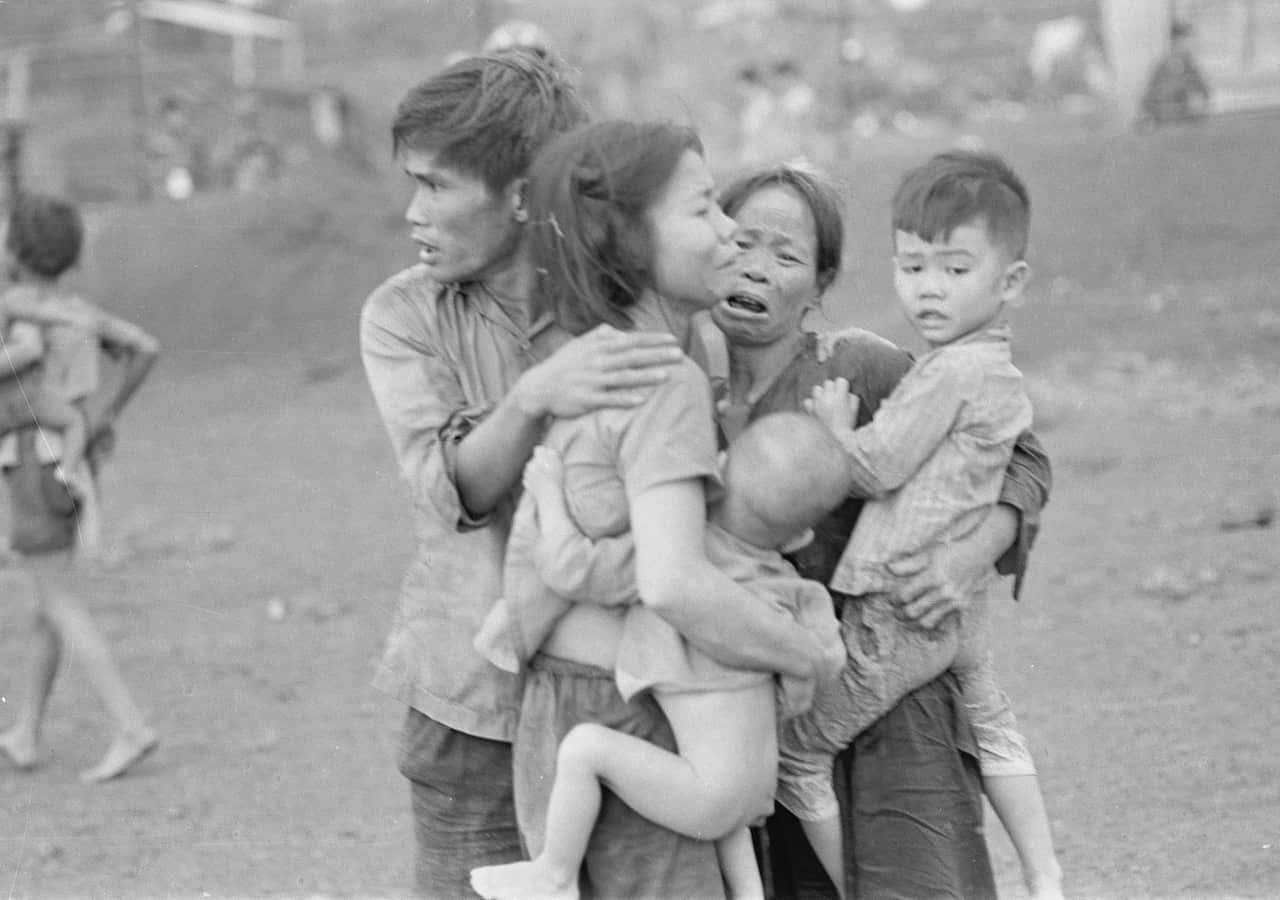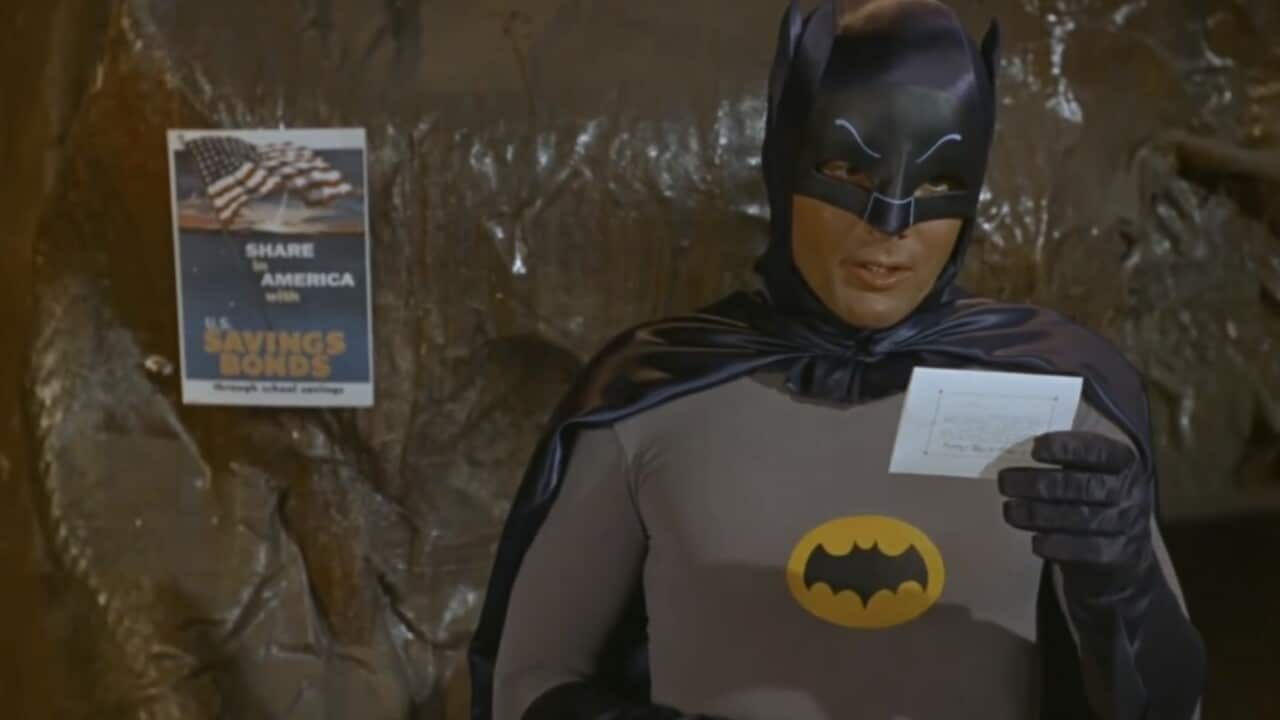Mine is not a unique story. I was born and raised in Australia by migrant parents who had escaped Vietnam by boat. Growing up, the words ‘The Vietnam War’ were never uttered by my parents.
Of course, I knew about the war. But my exposure to its horror, tragedy and futility was largely through ubiquitous pop culture references and archetypal movie montages of helicopters flying over dense jungle, accompanied by the familiar strains of iconic Vietnam War anthems.
Thus I had always received a politicised version of the war – a stage play, in which the unfolding events were told through the eyes of Western society. Although the victor typically gets to dictate how history is written, the US was still able to emerge as the narrator of a war in which it spectacularly failed. And which wouldn't be America's last.
Even though I had backstage access to the emotional current beyond the rigid political context, for whatever reason, I was never compelled to discuss these events with my parents – the very events that led to their being here in Australia.
Perhaps, I had viewed the war as external to my parents’ personal experiences, and taken on the assumption that it had not really affected them, their lives and their families – because it was not spoken about in our household. This is despite the fact that I knew that my maternal grandfather, a government official and a man I never had the opportunity to meet, had been taken away by the Viet Cong and killed when my mother was a child, his body only found decades later.
Or perhaps it was due to the Western privilege that I had inherited by virtue of being born in Australia – albeit a privilege that I will never be able to fully possess, simply due to the fact that my face does not fit the profile of an Anglo-Saxon. Why did I need to look at the past (and not even my own past, but my parents’ past) when it had no bearing (seemingly) on my present and future?
As I got older, though, I began to understand that our current prosperity, as citizens of the Western world, was borne out of an escape from the aftermath of a drawn-out and senseless war.
Finally, one day, I said to my parents, "Tell me about the Vietnam War."
Life following the war, according to my parents, was symbolised by restrictions imposed on its citizens by an intrusive government and a lack of freedom. At this time, my parents were teenagers entering adulthood. Also at this time, many people were fleeing the country by boat, seeking opportunities that existed oceans away in distant lands that echoed promises of a better life – or at least an alternative to the current reality. These promises came at a high price. If you chose to leave, this meant leaving behind your family, friends and life as you knew it, with no guarantee of ever being able to return. Goodbyes were final, except that no-one got to say goodbye – it was too great a risk. Factor in the danger of getting caught before even making it out to sea, with military patrolling the beaches – and following that, the very real threat of encountering pirates while navigating the seas – and the chances of survival seemed slim.
These promises came at a high price. If you chose to leave, this meant leaving behind your family, friends and life as you knew it, with no guarantee of ever being able to return. Goodbyes were final, except that no-one got to say goodbye – it was too great a risk. Factor in the danger of getting caught before even making it out to sea, with military patrolling the beaches – and following that, the very real threat of encountering pirates while navigating the seas – and the chances of survival seemed slim.

A family in peril in Vietnam, as seen in The Vietnam War on SBS TV. Source: Ken Burns' 'The Vietnam War'
My father says, "It was worth risking death to seek a better life".
My mother and father left in the middle of the night. Neither told their parents; neither let any one else know. It was too dangerous. My father had told his eldest brother that he would be leaving, but didn’t let him know the specific date, should the authorities come to question the family – which they did.
As my parents left in the boat with 11 others, including one child, they heard gunshots being fired from the shoreline. The patrol men had spotted them, but they managed to escape. My mother recounts spending five days at sea, before they eventually ended up in Hong Kong. My parents were in a refugee camp for seven months before they were sponsored to come to Australia by my mother’s cousin.
When my parents speak about this time, they almost sound flippant, as if they’re retelling a story about a cruise ship they once went on; as if everyone has a boat story. As if being prepared to leave everything behind and to risk your life in search of an alternative future was a usual occurrence.
The premise on which our lives are built can be tenuous – fickle even. Had my parents not made that courageous decision all those years ago, I would have been born in Vietnam and my life would have been drastically different. Not worse, necessarily, as Western life has its own foibles and complexities to navigate, but I would not have had the same opportunities that Western privilege decrees.
It is easy to get caught up in our lives without acknowledging the stories and historical events that have led you to a particular place. Histories are relevant to understand our past, present and future selves.
The Vietnam War may not have impacted me directly but it is the very reason for my being Australian. For that, it will always be an integral part of my own history.
The story of the war in Vietnam continues in Ken Burns' landmark documentary series The Vietnam War, now screening on Saturdays from 7:30pm on SBS.
Watch episodes now at SBS On Demand:



